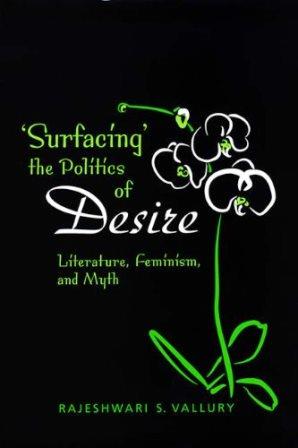'Surfacing' the Politics of Desire: Literature, Feminism, and Myth

‘Surfacing’ the Politics of Desire: Literature, Feminism, and Myth questions dominant feminist approaches to the literary representation of gender by revisiting the supposition that male-authored texts are impelled by the will to erase feminine difference. Analysing the representation of women in texts by Balzac, Gautier, and Maupassant, it maps the spaces where the textual productions of literature exceed or resist the critical paradigms of feminist thought, suggesting that literature expresses desires that cannot always be configured within the terms of dialectical oppression, nor understood as a denial of difference. Vallury’s readings of four male-authored narratives of nineteenth-century France structured according to myths that have traditionally been enlisted to understand the subordinate role of women in male-authored fiction (namely, the myths of Oedipus, Narcissus, Pygmalion, and androgyny), show how these literary texts challenge key feminist assumptions regarding the narcissism of masculine desire. Enlisting the thought of Deleuze and Guattari, Vallury suggests that mythical paradigms, as systems of representation and signification, are inadequate to understanding the ethico-political force of literary desire. She proposes that we view literature, not as a space of narcissistic self-representation or deluded reflection, but as a ‘desiring-machine’ of multiplicity and difference. Placing literature at the centre of feminist debates over the ontology and politics of sexual difference, ‘Surfacing’ the Politics of Desire could best be summarized as an argument for the capacity of literature to inscribe difference and possibility. Literature, in other words, articulates a desire that demands a different ethics or politics of interpretation.
Available for purchase here.
 Department Office
Department Office